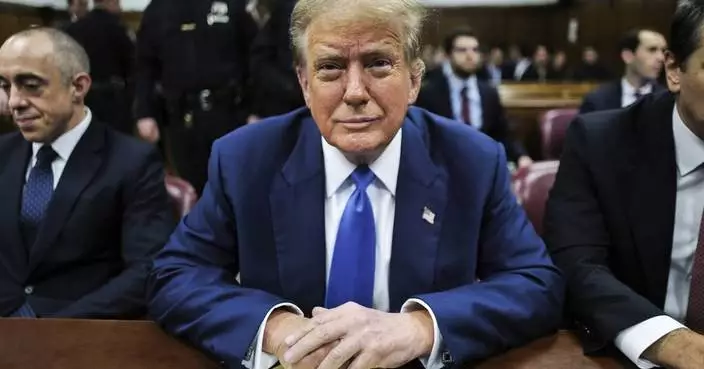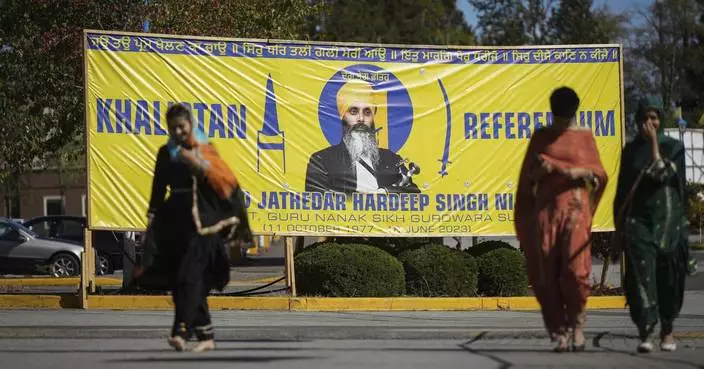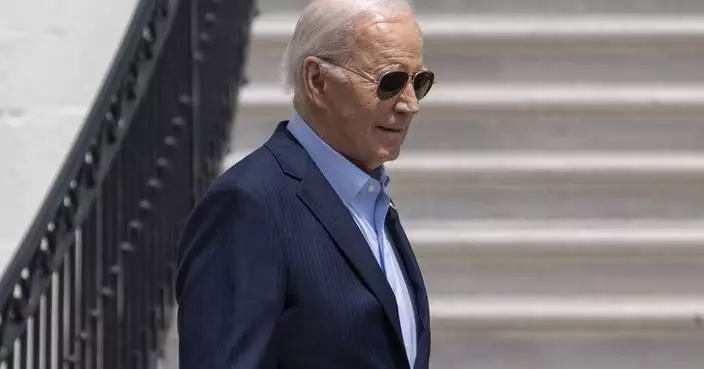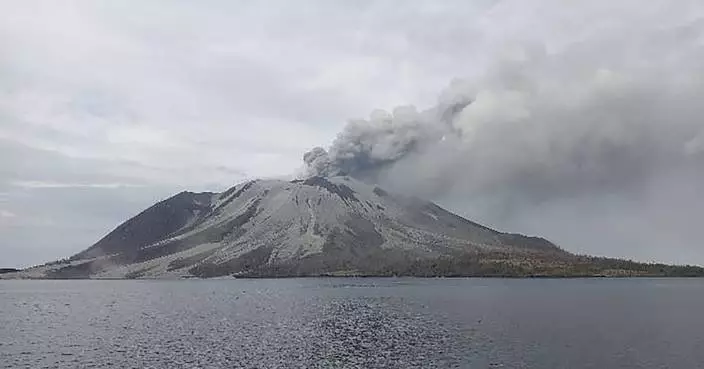Pakistan has approved India's proposals for exchanges of civilian detainees, the foreign ministry said Wednesday, a statement believed to also cover some of those held over the Kashmir conflict.
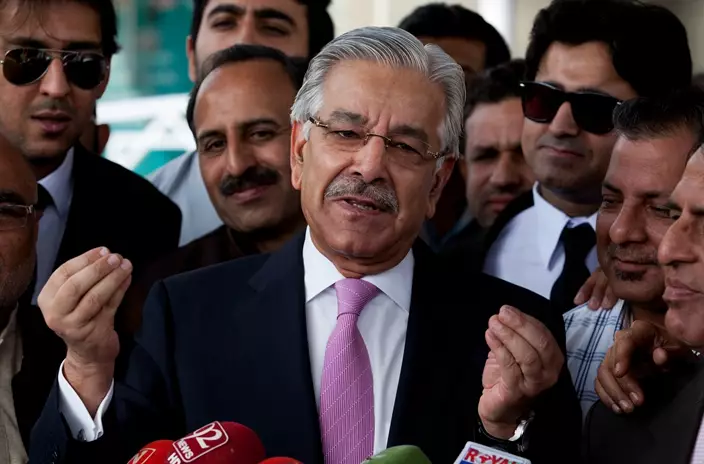
FILE - In this Nov. 3, 2016 file photo Pakistan's Foreign Minister Khawaja Asif speaks to reporters in Islamabad, Pakistan. (AP Photo/B.K. Bangash)
Foreign Minister Khawaja Asif said he hopes such initiatives would help Pakistan and India make efforts to de-escalate the situation in the disputed Himalayan region.
India proposed the exchanges on "humanitarian grounds" would include women, mentally ill or disabled people, and the elderly held by either side.
The ministry said Pakistan approved India's proposals and in turn, proposed that the exchanges be extended to include those under 18 and over 60 years of age.
It did not specify whether all the detainees are from Kashmir, but foreign ministry's spokesman, Mohammad Faisal, told The Associated Press the exchanges would be much broader than the Kashmir conflict and include all those held by either side that fall within the category of "humanitarian grounds."
Both countries exchange lists of detainees every year, Faisal said, lists that include fishermen who have strayed into territorial waters of the other side, citizens who have overstayed their visas, those who have languished in jail for too long, and visitors who come without proper papers, to visit shrines in different cities, for example, he said.
There were no specific details on how many such detainees each side holds.
lslamabad and New Delhi have tense relations, largely over Kashmir, which each claims in its entirety. The nuclear-armed rivals have gone to war over the region twice since they gained independence from Britain in 1947.
TOKYO (AP) — Japan and India on Saturday decried remarks by U.S. President Joe Biden describing them as “xenophobic” countries that do not welcome immigrants, which the president said during a campaign fundraising event earlier in the week.
Japan said Biden's judgment was not based on an accurate understanding of its policy, while India rebutted the comment, defending itself as the world’s most open society.
Biden grouped Japan and India as “xenophobic” countries, along with Russia and China as he tried to explain their struggling economies, contrasting the four with the strength of the U.S. as a nation of immigrants.
Japan is a key U.S. ally, and both Japan and India are part of the Quad, a U.S.-led informal partnership that also includes Australia in countering increasingly assertive China in the Indo-Pacific.
Just weeks ago, Biden hosted Japanese Prime Minister Fumio Kishida on an official visit, as the two leaders restated their “unbreakable alliance” and agreed to reinforce their security ties in the face of China’s threat in the Indo-Pacific.
Indian Prime Minister Narenda Modi also made a state visit to Washington last year, when he was welcomed by business and political leaders.
The White House said Biden meant no offense and was merely stressing that the U.S. was a nation of immigrants, saying he had no intention of undermining the relationship with Japan.
Japan is aware of Biden's remark as well as the subsequent clarification, a Japanese government official said Saturday, declining to be named due to the sensitivity of the issue.
The official said it was unfortunate that part of Biden's speech was not based on an accurate understanding of Japanese policies, and that Japan understands that Biden made the remark to emphasize the presence of immigrants as America’s strength.
Japan-U.S. relations are “stronger than ever” as Prime Minister Kishida showed during his visit to the U.S. in April, the official said.
In New Delhi, India’s External Affairs Minister S. Jaishankar on Saturday also rebutted Biden’s comment, saying India was the most open society in the world.
``I haven’t seen such an open, pluralistic, and diverse society anywhere in the world. We are actually not just not xenophobic, we are the most open, most pluralistic and in many ways the most understanding society in the world,” Jaishankar said at a roundtable organized by the Economic Times newspaper.
Jaishankar also noted that India’s annual GDP growth is 7% and said, “You check some other countries’ growth rate, you will find an answer.” The U.S. economy grew by 2.5% in 2023, according to government figures.
At a hotel fundraiser Wednesday, where the donor audience was largely Asian American, Biden said the upcoming U.S. election was about “freedom, America and democracy” and that the nation’s economy was thriving “because of you and many others.”
“Why? Because we welcome immigrants,” Biden said. “Look, think about it. Why is China stalling so badly economically? Why is Japan having trouble? Why is Russia? Why is India? Because they’re xenophobic. They don’t want immigrants.”
Japan has been known for a strict stance on immigration. But in recent years, it has eased its policies to make it easier for foreign workers to come and stay in Japan as a way to mitigate its declining births and rapidly shrinking population. The number of babies born in Japan last year fell to a record low since Japan started compiling the statistics in 1899.
India, which has the world’s largest population, enacted a new citizenship law earlier this year by setting religious criteria that allows fast-tracking naturalization for Hindus, Parsis, Sikhs, Buddhists, Jains and Christians who fled to India from Afghanistan, Bangladesh and Pakistan, while excluding Muslims.
AP writers Ashok Sharma in New Delhi and Seung Min Kim in Washington contributed to this report.
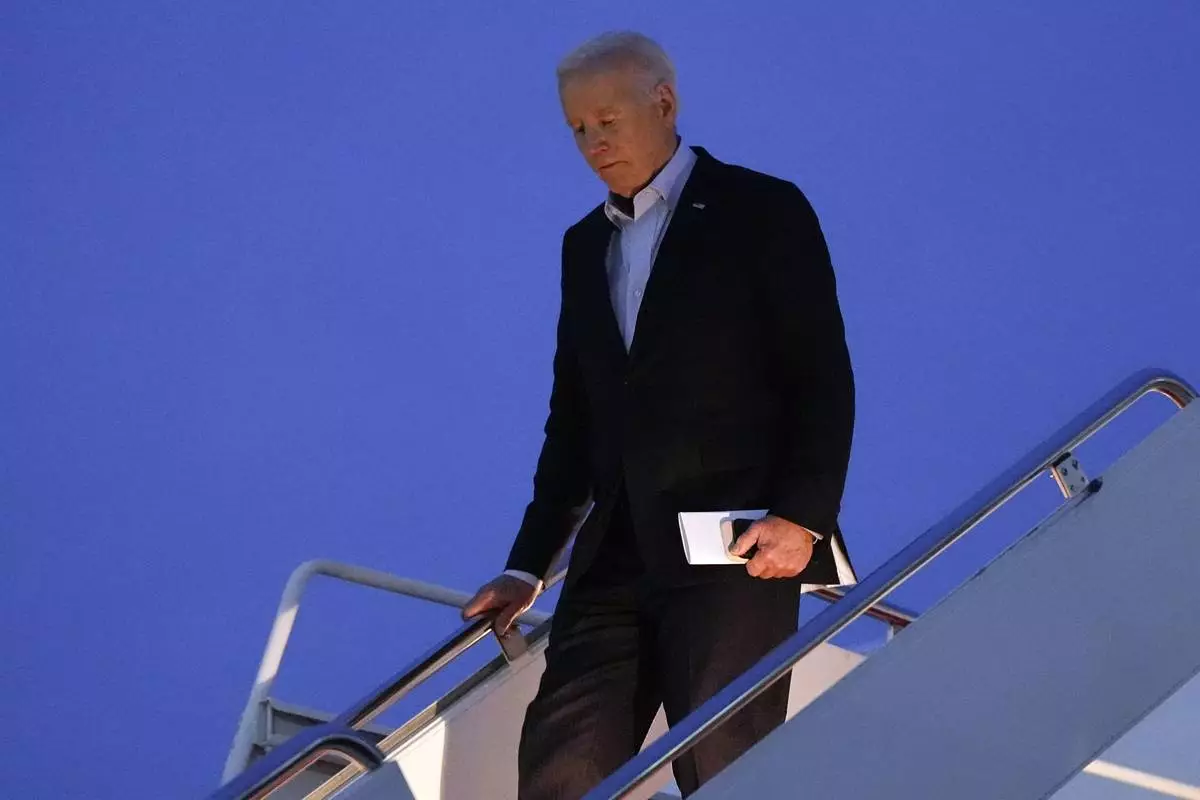
FILE - President Joe Biden arrives on Air Force One at Andrews Air Force Base, Md., Tuesday, April 30, 2024.. (AP Photo/Evan Vucci, File)





